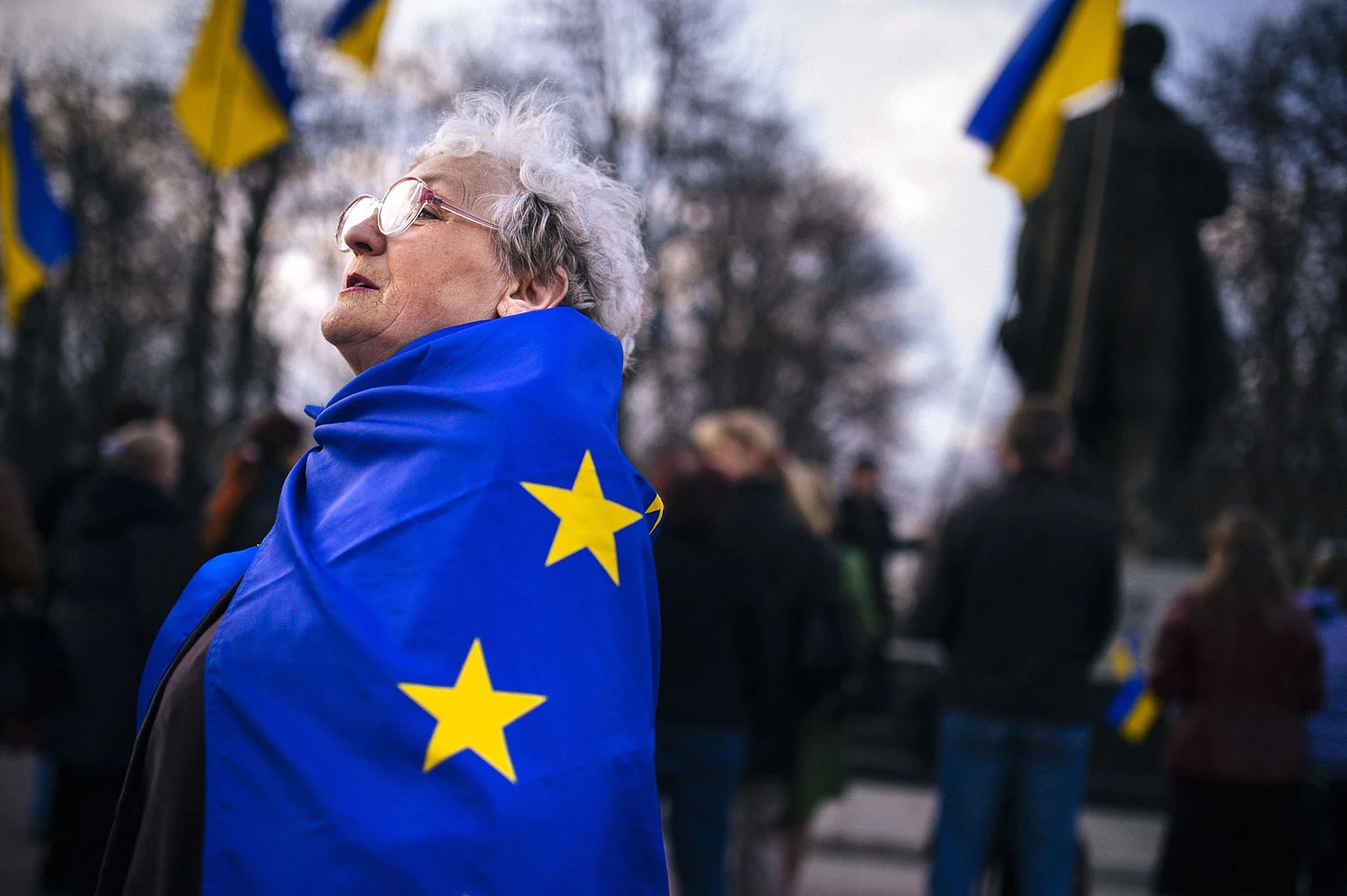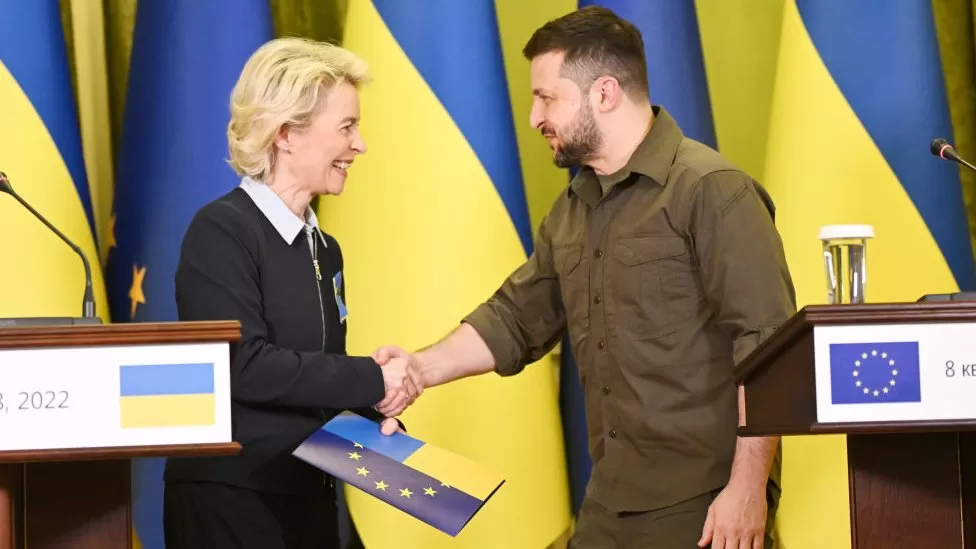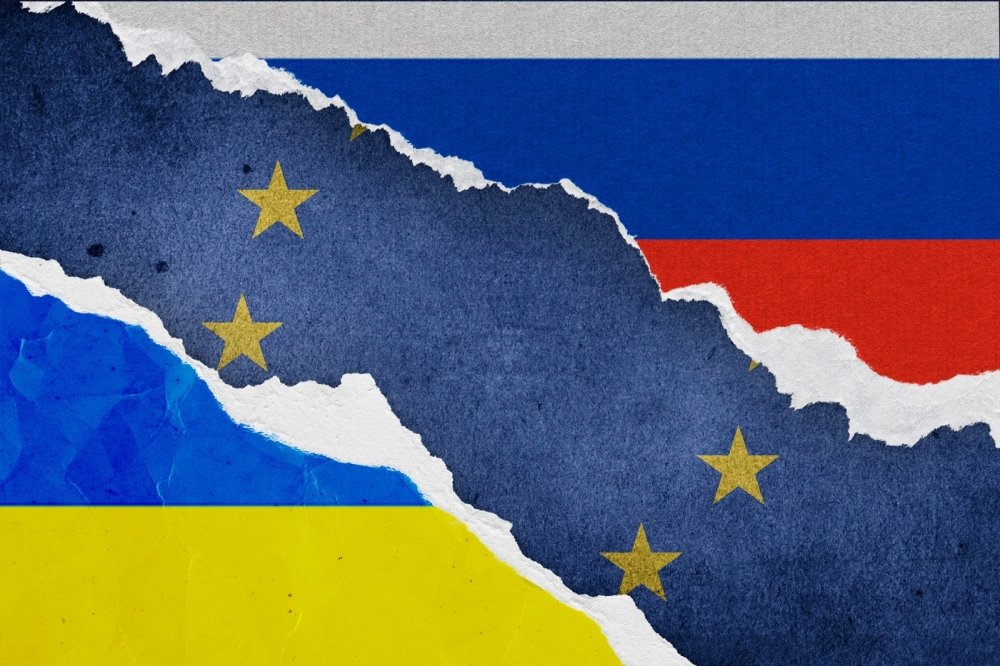By Terpsi Vassilopoulou,
The outbreak of the Russian-Ukraine conflict on February 24th, 2022, has been a major concern for the entire globe, engaging governments, people, institutions, and organizations worldwide. One of the entities most affected by this conflict is the European Union (EU). From the start of the war, the EU has unequivocally supported Ukraine and condemned the invasion as an irrational act from Russia, violating international law. Consequently, it has engaged in numerous diplomatic conversations and encounters with Russia to find a resolution for the conflict. Simultaneously, it has provided substantial economic and military aid, with EU member states’ contributions totaling 2.9 billion, an additional 1.4 billion from EU institutions, and 2 billion from the European Investment Bank. Additionally, the cessation of the Nord Stream 1 gas pipeline has propelled the EU into one of its most significant crises in recent years, ushering in the past winter with an uncertain energy and fuel supply. Considering all of this, it is clear that this conflict—despite not directly involving the EU or any of its members—has profoundly affected it both as a union and at the individual member state level. It could be easily argued that EU foreign policy is the segment most affected by this.
The primary goal of this paper is to demonstrate how the war in Ukraine has reshaped EU foreign policy. To achieve this, both qualitative and quantitative sources were utilized to ensure a comprehensive result covering all aspects of the topic necessary for understanding. Most of these sources are derived from international affairs research institutions and foundations, as well as scholarly literature from universities and scholars globally who have focused on EU foreign policy matters or the effects of the Russian invasion in Ukraine. The primary sources used include interviews with politicians from EU member states and people working for the EU, as well as material published by the EU itself. This approach ensures the credibility of the sources and data collected, with all information being fact-checked and cross-referenced.

Ever since its establishment, the EU has had to formulate a distinct foreign policy as a critical actor on the international stage and a representative of its member states. Therefore, numerous scholars have written about it, and there is ample literature on how various crises that the union has faced over the years have reshaped and formed its foreign policy. One of the main examples that can be linked to the war in Ukraine concerns the war in Yugoslavia in the late 20th century. Yugoslavia was the first socialist state to develop a trade relationship with the union. After the outbreak of the war within its borders, the EU made several attempts to resolve the conflict. Despite their hopeful and vigorous character, the situation quickly escalated, leaving the EU overwhelmed and unable to meet its needs. The procedures for making security decisions and policy completely failed. After the conflict ended and driven by its guilt for not preventing the primarily humanitarian crisis, the EU established the Common Foreign and Security Policy, a department of great importance to this paper’s topic, which will be discussed further later on (Anderson, 1995).
Before delving into the changes made by the EU, it is better to examine the theoretical context. While liberalism more accurately describes the EU’s response to Ukraine’s plea for help following the Russian invasion, especially with Ukraine not being a member state, the theory that best explains the EU’s stance on the Russian-Ukraine war is realism. Realism, while balancing between theory and practicality in foreign policy, indisputably recognizes the state’s survival as its main motive. Therefore, all its foreign policy decisions are influenced by this assumption. Groupism, specifically, applies to this case, with the EU being a group created by states to ensure their protection. This assumption is even more highlighted by the new wave of applications by Ukraine, Moldova, and Georgia to join the EU. Power centrism isalso clearly evident. Politics is seen as a struggle for power, which is defined as a combination of two distinct aspects: influence capacity and resources. Both of these aspects can be seen in the EU’s attempts to expand its influence by creating new alliances and broadening its network, while concurrently reassessing its trade agreements and production line. Until now, these efforts have led the EU to have a limited variation and deposit of resources, thereby limiting its power (Smith, 2016).

Analysis
When examining the ongoing changes in EU foreign policy, we must first look at the EU’s enlargement aspirations. Since its inception, the EU, now composed of 27 member states, has aimed to attract more members to increase its economic and influential capability on the world stage. At the Thessaloniki Summit, held in the eponymous city in Greece, a group of countries wishing to join the union as part of their development programs received a solid commitment from the union regarding their integration. This group consists of Albania, Bosnia and Herzegovina, Kosovo, Montenegro, North Macedonia, and Serbia. Almost 20 years later, this wish of the Western Balkans is still unfulfilled, leading many to talk about a fatigue characterizing EU enlargement plans. After the outbreak of the war and Ukraine’s application, a motion was approved to expedite the integration of both Ukraine and Moldova due to their emergency state (European Commission, 2022). From this, we see that the union’s previous hesitation about integrating new entities has disappeared following the invasion by Russian troops, with member states rallying around and supporting Ukraine as never before. This has created a second wave of countries wanting to join the union, starting with Moldova and Ukraine, followed by Georgia. Concurrently, this change in integration policy has sparked active participation by politicians of member states in different enlargement campaigns.
Greek Prime Minister Kyriakos Mitsotakis stated in an interview before the South-East European Cooperation Process (SEECP) Summit, “it’s finally time to keep our Thessaloniki promise”. He added that this plan to integrate the Western Balkans into the union by 2023 would make a bold statement, showing the world that the EU can live up to the expectations set by both itself and its citizens. Meanwhile, German Chancellor Olaf Scholz embarked on a tour through the Western Balkans in June, emphasizing the strategic importance of those countries’ integration for Germany, and clarifying his intention to promote their request and facilitate their integration. Such actions clearly demonstrate a renewed focus on enlargement plans by the union and its representatives, with the EU’s member states list seeming to expand rapidly in the coming years. This new dynamic may also affect the union’s integration process as we now know it, with a reassessment of the Copenhagen criteria being possible in the near future. Regardless of the war’s outcome, Ukraine’s application has definitely shifted European politics towards a more attentive focus on their expansion program (Valon, 2022).
In the next part, we will examine the economic and trade policy as well as the security policy in order to reach some conclusions…
References
-
Smith, S., Hadfield, A., Dunne, T.(eds.) (2016) Foreign Policy: Theories, Actors, Cases. 3rd Edition (Oxford University Press)
-
Pech, Laurent. The European Union After the Treaty of Lisbon. Edited by Diamond Ashiagbor et al., Cambridge University Press, 2012.
-
Mitsotakis, K. (2022, June 9). It’s time to get European enlargement back on track. politico.eu. Available here
-
EU’s foreign, security and defence policy after the Russian invasion of Ukraine: Speech by high representative/vice-president Josep Borrell at the EP plenary. EU’s Foreign, Security and Defence Policy after the Russian invasion of Ukraine: Speech by High Representative/Vice-President Josep Borrell at the EP plenary. eeas.europa.eu. Available here




